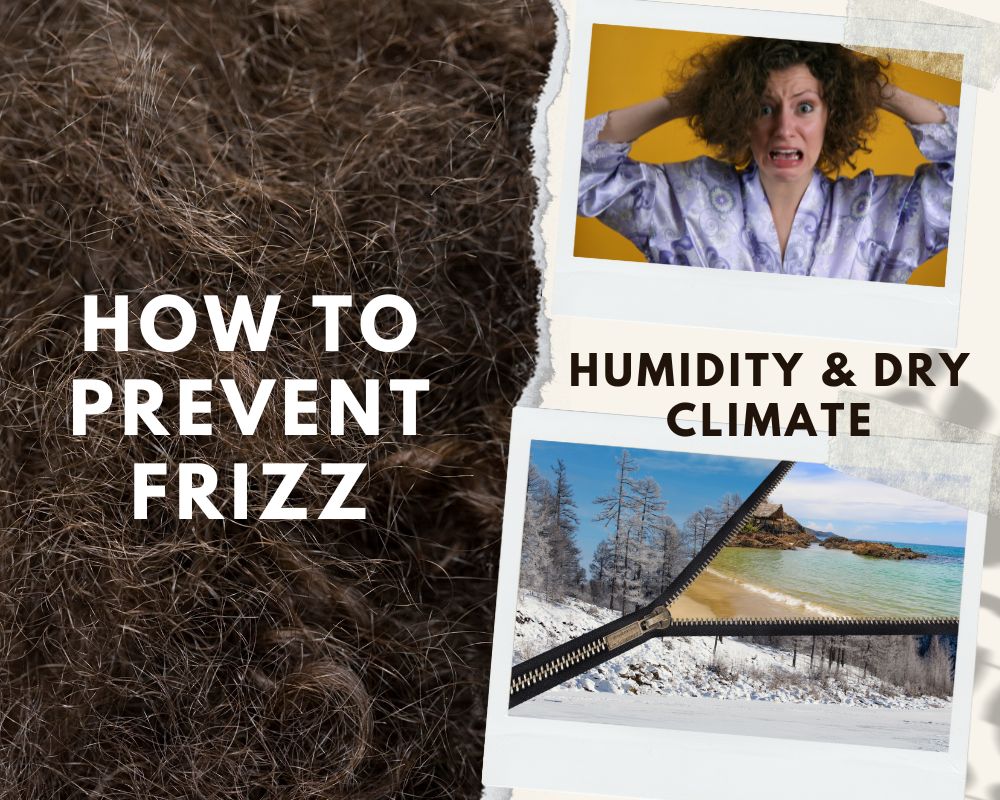Humidity Got You Down? Here's How Film Forming Humectants Can Save Your Curly Hair Day!
As someone with curly hair, I know firsthand how frustrating it can be when the weather gets humid. All that time spent washing, conditioning, and styling your curls can feel like a waste when you step outside and your hair instantly frizzes up. But fear not, fellow curly-haired friends! The solution to our humidity woes lies in humectants.
What are Humectants?
Humectants are ingredients that attract moisture from the air and bind it to the hair shaft. Humectants are a crucial component of curly hair care, as they help to keep the hair hydrated and prevent frizz. Curly hair tends to be dry and more prone to damage than straight hair, and as a result, it requires more moisture. Humectants help to attract and retain moisture in the hair, which is essential for maintaining healthy, hydrated curls.

Some common humectants include glycerin and honey both found in Alchemy Curls Moisturizing Gel.
How Do Humectants Work?
Humectants work by attracting water molecules from the surrounding environment and binding them to the hair. They have a hygroscopic nature, which means that they can absorb and hold onto water molecules. This helps to prevent moisture loss from the hair, keeping it hydrated and moisturized.
When the air is humid, the surrounding environment is already full of water molecules. In this situation, humectants may absorb too much moisture from the air, leading to hair that is overly moisturized and limp. On the other hand, in dry conditions, there may not be enough moisture in the air for the humectants to attract, and the air actually pulls moisture from the hair resulting in dehydrated and curls prone to breakage.
To prevent this, it's important to balance the use of humectants with anti-humectants / Film-forming humectants which help by creating a barrier around the hair to prevent moisture loss without absorbing too much moisture from the air.
Pro Tip: the ideal humidity level is around 50-65% RH to use Humectants.

Anti-Humectants: The Unsung Heroes
While humectants are great for keeping your hair hydrated, it's important to balance their use with anti-humectants. Anti-humectants are ingredients that repel moisture from the air and help keep your hair from becoming too hydrated. Some common anti-humectants include silicone, oils, and waxes. It might seem counterintuitive to use an ingredient that repels moisture, but in certain conditions, it can be beneficial.
Film-Forming Humectants: The Best of Both Worlds
Film-forming humectants are ingredients that create a barrier on the hair shaft, like regular humectants, but they also contain anti-humectant properties. This means that they can help keep moisture in while also preventing too much moisture from being absorbed. Some common film-forming humectants include pectin, aloe vera and xanthan gum found in our Honey & Babassu Oil Curl Moisturizing Gel.
These ingredients are especially useful for curly hair because they help create definition and hold while also preventing frizz. The film-forming properties can also help protect the hair from environmental damage.
In Conclusion: Finding the Right Balance
When it comes to using humectants in your hair care routine, it's all about finding the right balance. Using too many humectants in humid conditions can lead to overly hydrated hair, while not using enough can lead to dry, brittle hair in dry conditions. Incorporating anti-humectants and film-forming humectants can help you find that balance and keep your curls looking their best no matter what the weather is like outside.
So don't let humidity get you down! Embrace the power of humectants and enjoy frizz-free curls all year round.
Try Our Honey & Babassu Oil Curl Moisturizing Gel it's packed with humectants and film forming humectants as well for high humidity or dry climate we recommend trying the LGO method (finishing your curly routine with a sealant oil).



